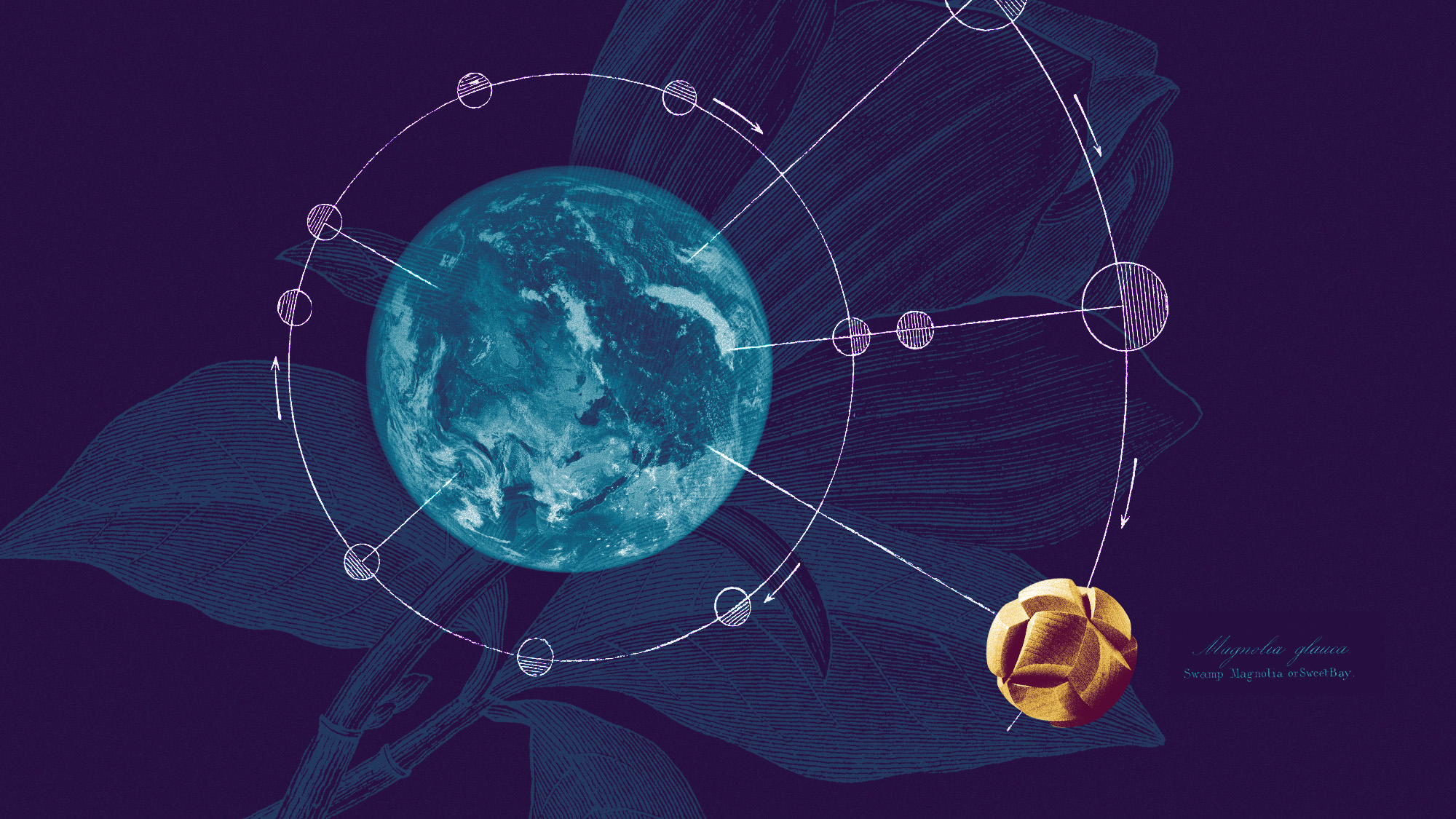'Magnolias in space': why scientists have created the world's first wooden satellite
New Japanese probe could help tackle 'graveyard of space junk' encircling Earth

A free daily email with the biggest news stories of the day – and the best features from TheWeek.com
You are now subscribed
Your newsletter sign-up was successful
A satellite made from magnolia wood and the size of a coffee mug could save the upper atmosphere and usher in a more environmentally friendly era for space industries.
The aluminium satellites that currently circle Earth are a major environmental concern, as they create pollutants as they degrade and cause problems for other human-made structures in space.
Building in space with "futuristic, space-age materials might seem to be the obvious choice", researchers from Kyoto University and the commercial company, Sumitomo Forestry said in The Times, while "lumber's fragility and combustibility might seem counterintuitive by comparison".
The Week
Escape your echo chamber. Get the facts behind the news, plus analysis from multiple perspectives.

Sign up for The Week's Free Newsletters
From our morning news briefing to a weekly Good News Newsletter, get the best of The Week delivered directly to your inbox.
From our morning news briefing to a weekly Good News Newsletter, get the best of The Week delivered directly to your inbox.
But the Japanese scientists believe their new magnolia satellite, called LignoSat, could prove to be a major development in space technology.
'Almost comical'
There is "something almost comical" about a satellite being made of wood, said The Times in a leading article. "The idea that botanical material could stand up to the rigours of whirling around the earth, its innards filled with high-tech communications or scientific instruments, seems preposterous."
But Japanese scientists have managed just that, after they tested several types of wood to determine how well they could withstand the "rigours" of launching into space and lengthy flights in orbit round the Earth, said The Observer.
Early tests were carried out in labs that recreated conditions in space, and wood samples were found to have suffered "no measurable changes in mass or signs of decomposition or damage". The experts tested several types of wood, including Japanese cherry, but wood from magnolia trees proved to be the most vigorous.
A free daily email with the biggest news stories of the day – and the best features from TheWeek.com
"Wood's ability to withstand these conditions astounded us," said Koji Murata, head of the project. Samples were then sent to the International Space Station, where they faced exposure trials for almost 12 months. They showed little signs of damage, which the scientists put down to the fact that there is "no oxygen in space which could cause wood to burn, and no living creatures to cause it to rot".
Another advantage is that wood is more easily penetrated by radio waves, which means that the satellite's communications equipment, which will be made of metal, can be carried inside the magnolia shell, making a simpler and more streamlined design possible.
'Graveyard of space junk'
A "whirling belt, like a ring of Saturn", has been formed around Earth, said The Times. That's because aluminium satellites "don't just burn up to nothing as they are brought home to die", but instead form "tiny particles, a dangerous pollutant, that add to the ever bigger graveyard of space junk".
Space is now "severely overcrowded", it added, because in the belt above the stratosphere, some 10,600 satellites "help our cars to navigate, connect our phone calls and spy on our enemies", but around 3,000 of them are defunct.
A study by scientists at the University of British Columbia in Canada found that aluminium from re-entering satellites could cause "serious depletion of the ozone layer which protects the Earth from the sun's ultraviolet radiation", said The Observer.
So the scientific community has become ever keener to find a solution to this impending problem. If LignoSat performs well during its operation in orbit, then the "door could be opened" for the use of wood as a construction material for more satellites.
"Since wood has never been used in satellites, we cannot tell what kind of benefit we can obtain at this moment," said Tatsuhito Fujita, an engineer at the Japanese space agency JAXA, told CNN last year.
But with more than 2,500 satellites expected to be launched each year for the next seven years, the use of wood could spell real environmental progress.
Chas Newkey-Burden has been part of The Week Digital team for more than a decade and a journalist for 25 years, starting out on the irreverent football weekly 90 Minutes, before moving to lifestyle magazines Loaded and Attitude. He was a columnist for The Big Issue and landed a world exclusive with David Beckham that became the weekly magazine’s bestselling issue. He now writes regularly for The Guardian, The Telegraph, The Independent, Metro, FourFourTwo and the i new site. He is also the author of a number of non-fiction books.